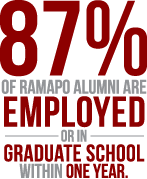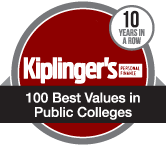College Catalog: 2010-2011
School of Social Science and Human Services (SSHS): Gerontology
Convener:
- Kim Lorber
Faculty:
- Erin Augis
- Donna Crawley
- Kathleen Fowler
- Aaron Lorenz
Faculty:
- Kathleen Moskin
- Tom Owen
- Judith Peck
- Susan Scher
Gerontology is the interdisciplinary study of the social, physical and cultural dimensions of aging. Gerontologists are concerned with creating environments for successful aging and with ensuring the maintenance of quality life experiences for the aging in our population. Since increasing numbers of Americans are living longer, there is a need for people trained in understanding the complex interaction between aging and society.
The gerontology program at Ramapo College is designed to introduce students to the various aspects of aging: the biology of aging, the psychology of aging, the sociology of the aging population, and issues of death and dying. In addition, we require gerontology students to do fieldwork with the aging or in any agency devoted to issues of aging to provide hands-on experience.
The study of gerontology is highly recommended for students majoring in social work, psychology, sociology, nursing, or business administration. In addition to the gerontology minor program for matriculated students, Ramapo welcome service workers presently working in agencies or institutions with the aging to take courses in gerontology.
Career options for gerontology students are expanding rapidly and include administrative work in government agencies on aging, in hospitals and nursing homes, and in arts activity and recreational programs for older people. Direct service provision may include home health care workers, social workers, and hospital workers. In addition, they are burgeoning business opportunities geared toward the older segment of the population.
The faculty teaching in the gerontology program come from a variety of disciplines within the college and, collectively, has tremendous experience in the field. Areas of expertise include:
- The development of programs for caregivers
- Direct service provision for older adults
- Art therapy
- Issues of death and dying
- Human development over the life cycle
- Community programs for older adults
- Ethical and legal issues for older adults
- Subject & Course # – Title & Course Description
- Required Courses:
- PSYC 212 - PSYCHOLOGY OF AGING
- SOCI 205 - SOCIOLOGY OF AGING
- SOSC 314 - DEATH AND DYING
- SWRK 210 - INTRODUCTION TO GERONTOLOGY
- Electives: Choose one of the following (contact the convener for new course electives):
- ARTS 219 - ART AND INTERACTION
- LAWS 310 - LAW AND THE ELDERLY
- NURS 402 - GERONTOLOGY (nursing students only)
- SOSC 316 - FACING DEATH AND LOSS IN LATER LIFE
- SWRK 263 - HUMAN BEHAVIOR AND SOCIAL ENVIRONMENT II: LIFE CYCLE
- Relevant Co-Op or Independent Study in a Topic Related to Aging
- In addition, a 40-hour gerontology-related field experience is required. This can be done in conjunction with one of the other gerontology courses, such as “Death and Dying” or “Art and Interaction”, or as part of an internship requirement for a major, such as Social Work, Nursing, Law and Society, or Psychology.
Note: A school core is NOT required for completion of the minor. Minors are open to students regardless of school affiliation.
School of Social Science and Human Services Website
Faculty Profiles






